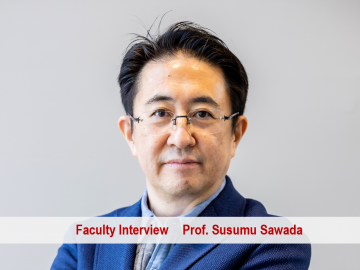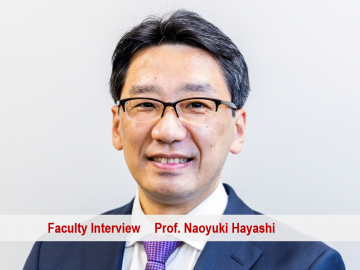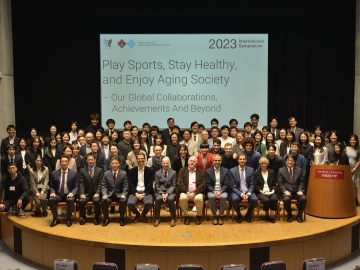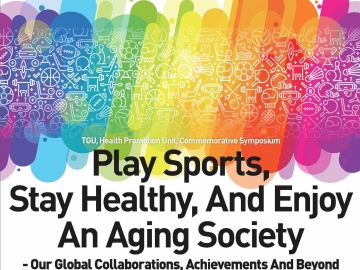 Pursuing Wellbeing by Elucidating the Relationships Among Sleep, Sports and Mental Health
Pursuing Wellbeing by Elucidating the Relationships Among Sleep, Sports and Mental Health
Effects of sleep on sports performance
At the Sports Psychiatry Lab, the theme of our research is sleep and human circadian rhythms and their relationship with sports. While it is well known that the right amount of exercise and sufficient sleep are good for health, we take a more extensive look, from a scientific perspective, at the long-term impacts and relationships involved. The lab places emphasis on research that can play a useful role in boosting athletic performance and improving the health and wellbeing of ordinary people.
In recent years, we have deepened our investigations into the way sleep influences sporting performance. Research has yielded considerable insights: for example, moderate napping improves soccer players’ scanning activity and golfers’ putting performance, and morning practice can hamper the sleep of student athletes. In the past, sports research focused primarily on exercise physiology, nutritional science and training science; sleep was ignored as merely “time spent doing nothing.” Today, recognition of the importance of sleep is growing.
Supporting the Mental Health of Athletes
Sleep science is today recognized internationally as a legitimate area of investigation. Research on the relationships among sleep, mental health and sports, however, is still rare worldwide, but it is a key focus of our lab. We are currently moving forward with research concentrated on the mental health of athletes. 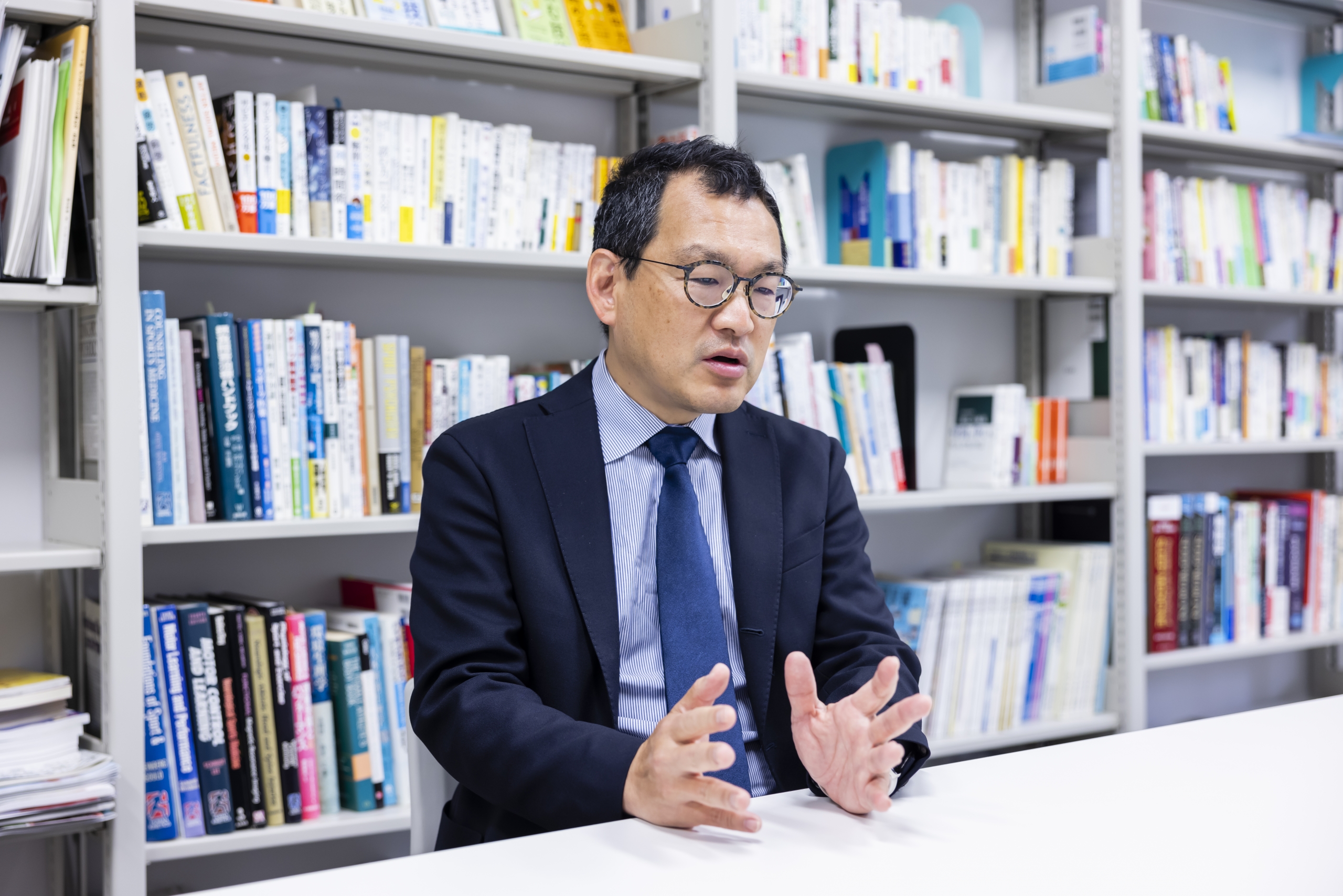 The barriers that athletes face are as numerous as they are varied: extreme pressure to produce results, the excessive burden of coaching and training, abuse received on social media, and the prospect of unexpected periods of convalescence due to injury are just a few. We seek answers regarding the kind of psychological support athletes need.
The barriers that athletes face are as numerous as they are varied: extreme pressure to produce results, the excessive burden of coaching and training, abuse received on social media, and the prospect of unexpected periods of convalescence due to injury are just a few. We seek answers regarding the kind of psychological support athletes need.
The lab also takes active part in joint research between industry and academia. For example, we collaborated with Yogibo Inc. to elucidate the effect that sleeping on a bean bag chair has on muscles, heartbeat and autonomic function. Right now the lab is working with Tential Inc. on research about recovery sleepwear, testing the effect on fatigue of special fibers that use radiant heat. We have a great deal of interaction with companies that deal with sleep. Some students use this joint research as an entry point to pursue employment opportunities at the partner companies.
Fusing Native-country Perspectives with Studies in Japan
In principle, the Faculty of Sport Sciences publishes its research in English-language media. We have frequent opportunities to participate in overseas academic conferences. As a base for the Top Global Universities Project, the Faculty is deepening its relationships with partner universities overseas.
For us on the front lines of research, proficiency in writing theses in English is a skill of critical importance and a major focus of our teaching efforts. Although translation tools are helping to lower the language barrier, there will always be a need for the ability to construct an argument in one’s native language with a view to producing the output in English.
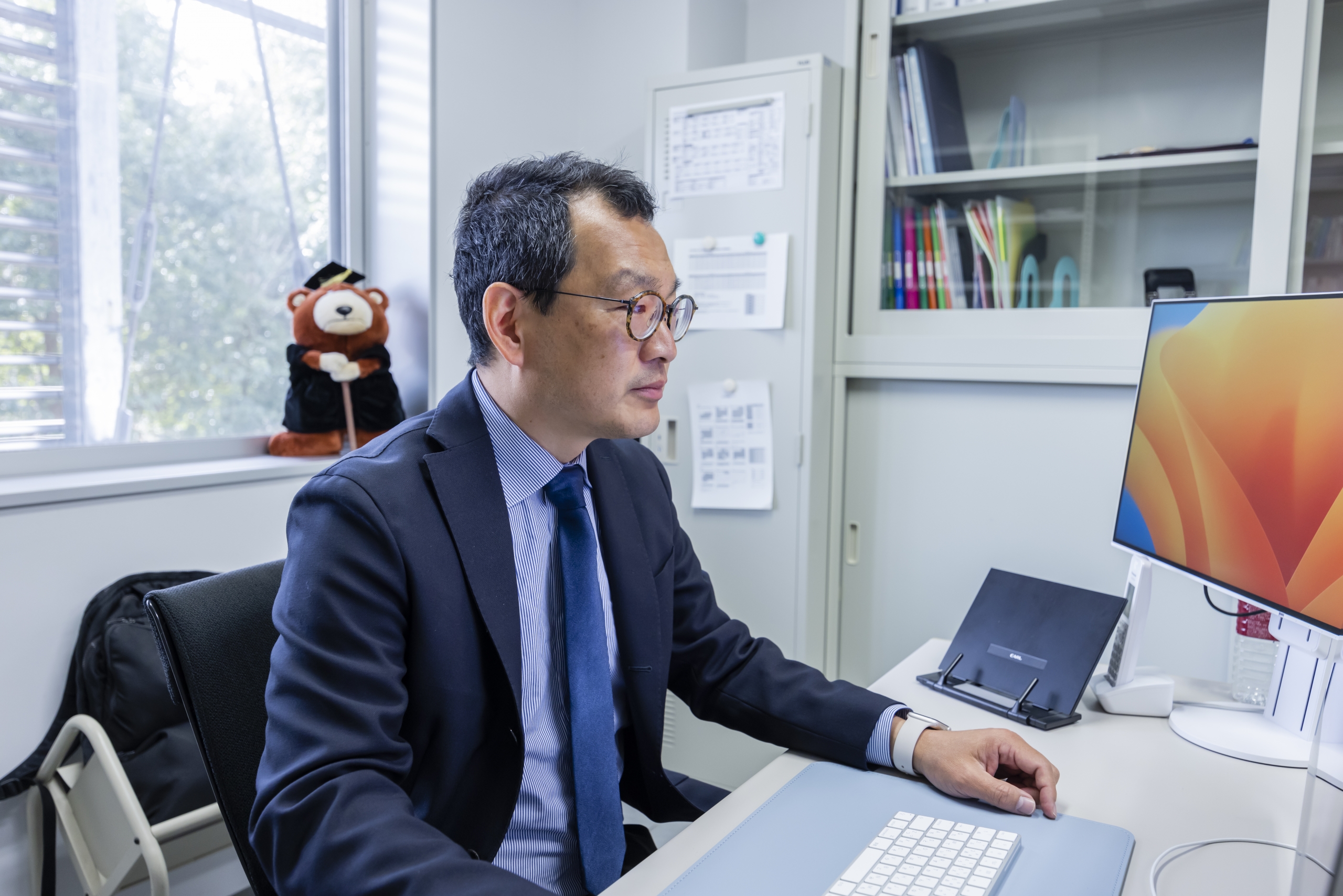 Many of the students at the Faculty of Sport Sciences are international students, and we expect to welcome students from an even wider range of countries, to obtain a diverse range of perspectives. Even while using English as the base language for our research activities, we find communicating in our native Japanese most comfortable for inquiries that touch on the finer points of people’s feelings. If you’re interested in learning Japanese and value the precious opportunity to experience a different culture, you’ll find the Faculty an exceptionally fruitful environment. I hope you will fuse the perspectives of your own country with your studies in Japan to spark an exciting new “chemical reaction.”
Many of the students at the Faculty of Sport Sciences are international students, and we expect to welcome students from an even wider range of countries, to obtain a diverse range of perspectives. Even while using English as the base language for our research activities, we find communicating in our native Japanese most comfortable for inquiries that touch on the finer points of people’s feelings. If you’re interested in learning Japanese and value the precious opportunity to experience a different culture, you’ll find the Faculty an exceptionally fruitful environment. I hope you will fuse the perspectives of your own country with your studies in Japan to spark an exciting new “chemical reaction.”
Profile
Professor Nishida specializes in sleep medicine and psychiatry. He graduated with a doctoral degree from the Faculty of Medicine, Tokyo Medical and Dental University (TMDU). Doctor of Medicine. He served as a resident at the National Center of Neurology and Psychiatry, and research fellow at Harvard University, before working as an assistant professor at the Faculty of Medicine of TMDU, lecturer at Jichi Medical University and visiting lecturer at Stanford University before joining the Faculty of Sport Sciences in 2017 as an associate professor. He was appointed to his current post in April 2023.
Related faculty interview articles
- Interview article on Professor Naoyuki Hayashi of our Faculty of Sport Sciences on the theme of “Investigating the Physical Changes and Physiological Mechanisms Associated with Exercise.” To learn more, read the article here!
- Interview article on Professor Susumu Sawada of our Faculty of Sport Sciences on the theme of “Contributing to People’s Health and Happiness by Promoting and Encouraging Physical Activity through Research in Sports Epidemiology.” To learn more, read the article here!
